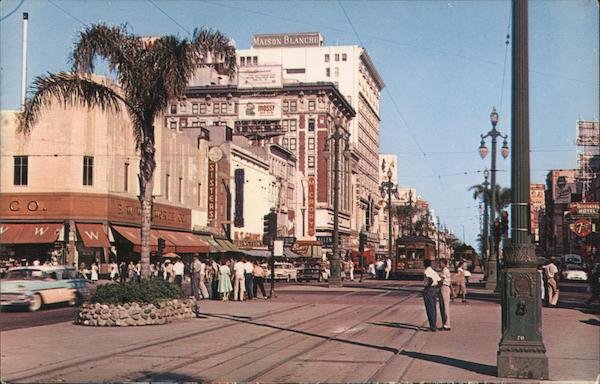Food and Race Through the Lens of History

As in cities worldwide, the streets of New Orleans have come alive this spring with protests, marches, and rallies for racial justice. The Crescent City has long been a hotbed for activism and played an important role in civil rights era organizing that helped put an end to Jim Crow. This week, we take a look at the legacy of the segregated South through stories about the intersections of food, race, and labor over the past century.
The late Michael Mizell-Nelson spent his career studying the experience of working class New Orleans. We revisit our streetcar ride with Michael, as he shares the history of public transportation during the era of Jim Crow.
Then, we hear from the late Dr. Rudy Lombard, whose mother was a housekeeper at an opulent Uptown home in New Orleans. Rudy’s childhood experiences played a part in leading him to the 1960 McCrory’s lunch counter sit-in on Canal Street which eventually brought about Lombard vs. Louisiana – the 1963 Supreme Court decision ending segregation in dining establishments.
We continue our look at the lunch counter with historian Jill Cooley. Her book To Live and Dine in Dixie traces the story of race and gender politics within dining spaces during the age of Jim Crow.
Finally, we hear from John T. Edge, director of the Southern Foodways Alliance, and author of The Potlikker Papers. John T. tracks the history of Southern food, delving into issues of race, class, gender, and ethnicity from the civil rights era through today.
For more of all things Louisiana Eats, be sure to visit us at PoppyTooker.com.
